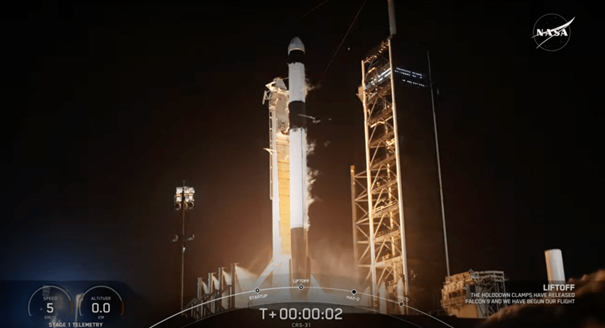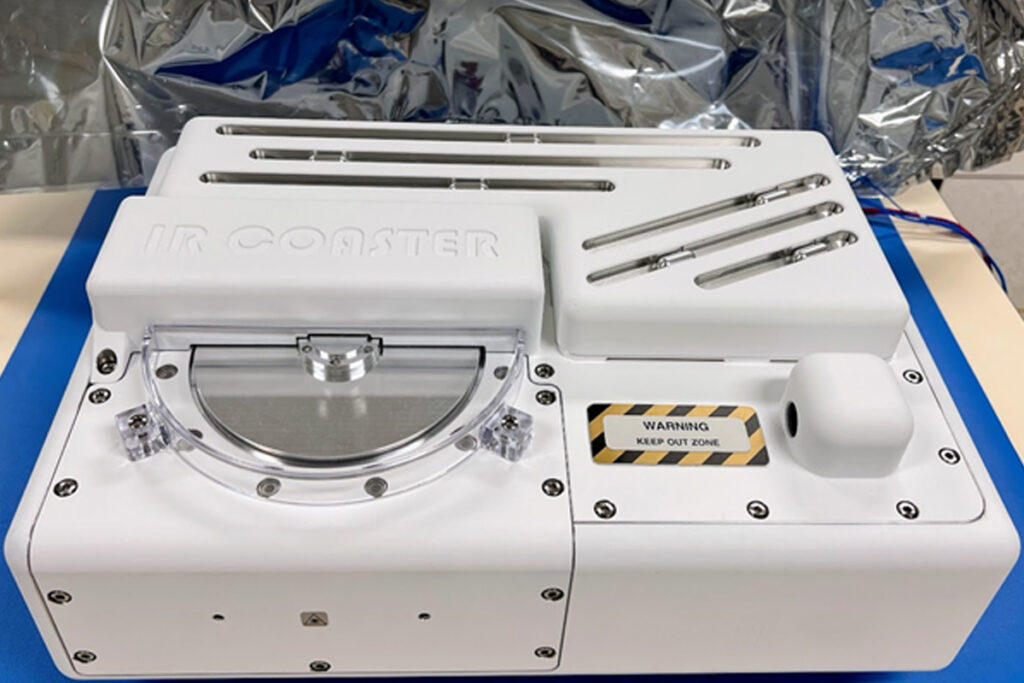Developed at the Laboratoire interuniversitaire des systèmes atmosphériques (LISA/Campus spatial UPEC), IR-COASTER is a research project launched on November 05, 2024 at 03:29 (French time) aboard a Falcon 9 rocket to the International Space Station, from where it will analyze the aging of organic matter caused by exposure to solar radiation.

Credits: NASA

Credits: LISA/Noël Grand

Credits: NASA
How does organic matter evolve when exposed to the Sun’s radiation? This is the question for which a team from LISA, a member of the Nanosats Federation, led by Hervé Cottin and Noël Grand, has designed the IR-COASTER (InfraRed-Cubic Orbital Astrobiology Exposure Research) experiment.
This astrobiology research project is particularly important, since organic matter is thought to be the essential ingredient for the appearance of life. Improving our knowledge of chemical evolution in an extraterrestrial environment is therefore fundamental to understanding the distribution of organic matter in the Universe, and the search for life on another planet. The main driver of chemical evolution in the solar system is solar radiation. While it is possible to simulate the evolution of organic molecules in the laboratory, it remains a challenge to simulate conditions in the space environment, in particular solar light and wind. Sending samples into space to expose them directly to the Sun’s rays is therefore essential.
Initially conceived as a 6U nanosatellite, IR-COASTER finally benefited from the opportunity to be installed on the Bartolomeo platform of the International Space Station’s Columbus module. The device, which remains almost as compact as in nanosatellite configuration, carries samples of organic matter and an infrared spectrometer (4000-1000 cm-1). Until now, in previous experiments, samples were checked only twice, before departure and on return. For the first time, thanks to the integration of an infrared spectrometer, it will be possible to carry out regular monitoring throughout the mission.
The next step will be to deploy it outside the ISS, where it will remain attached for 1 year.